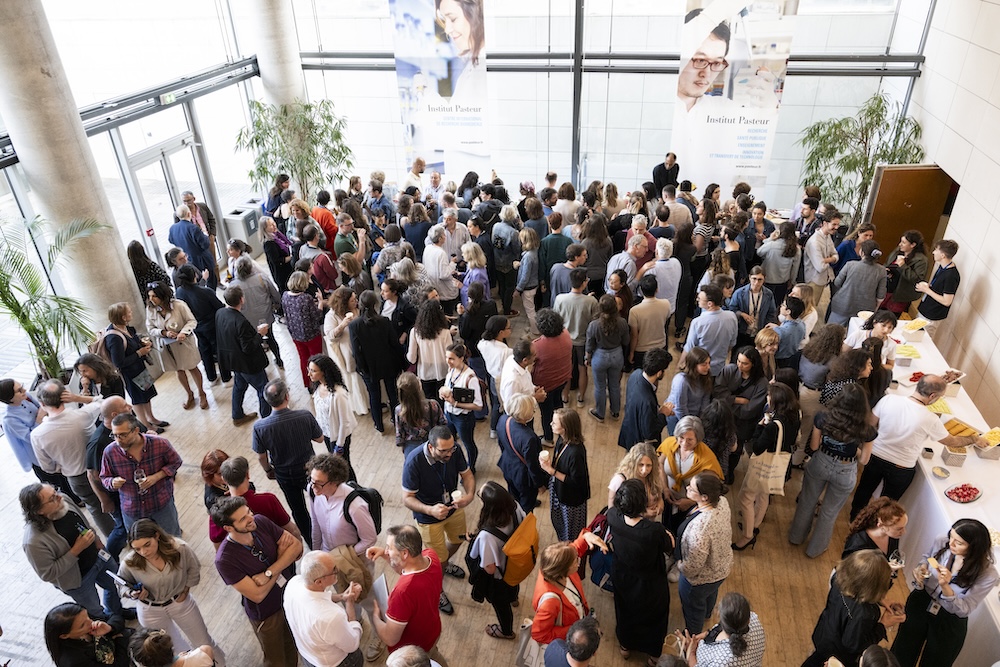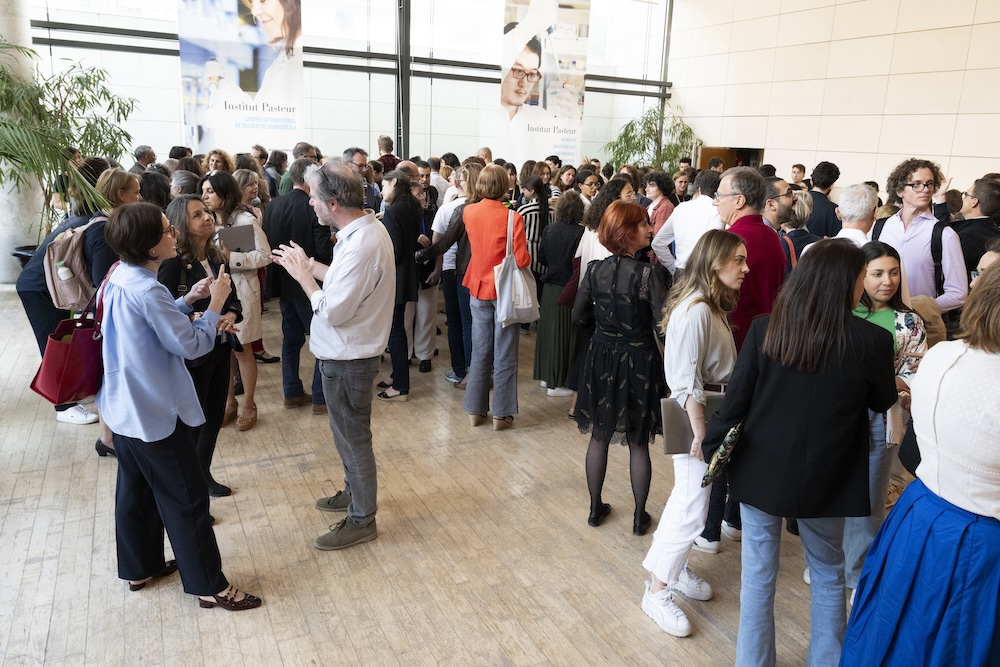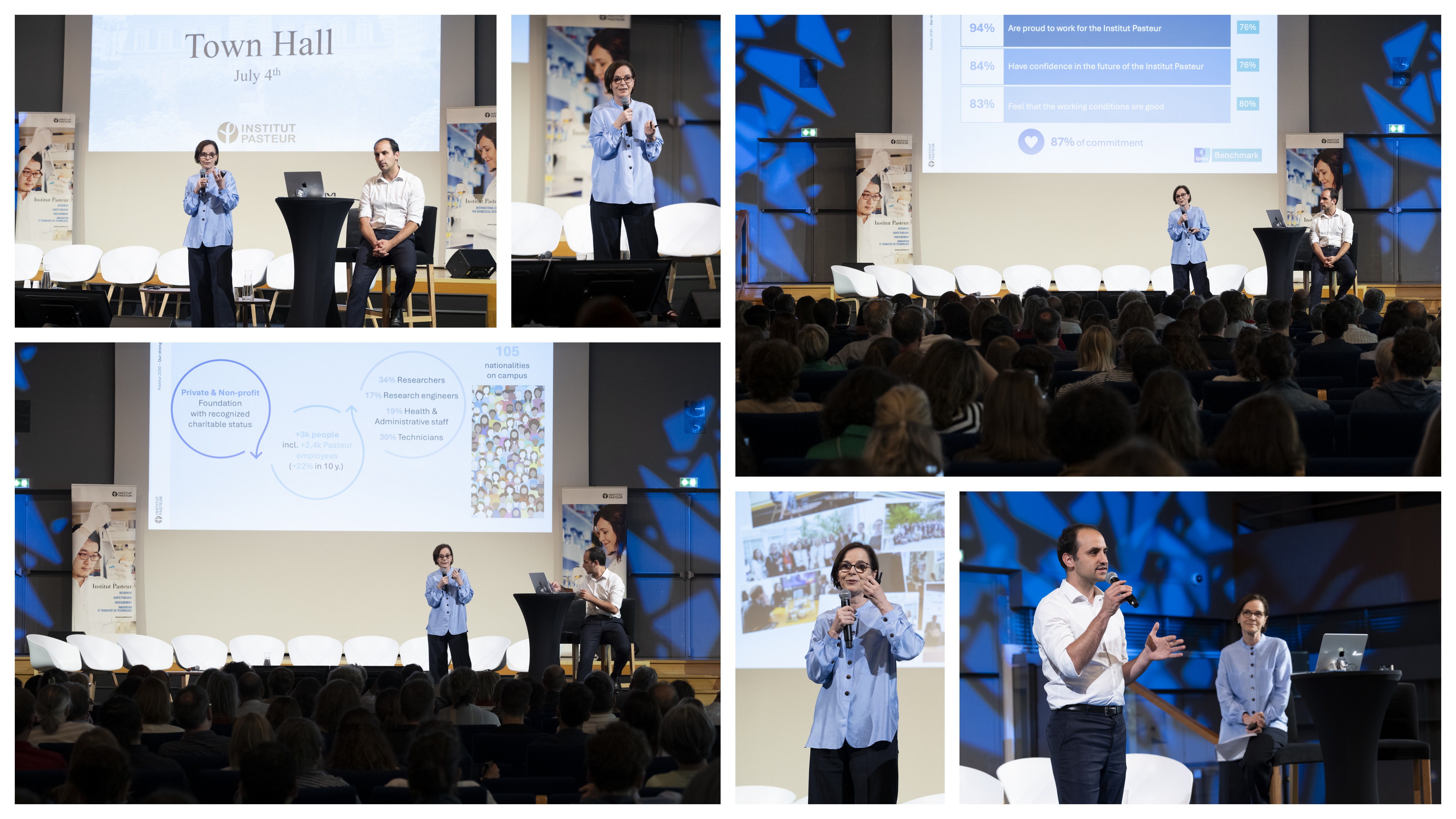
July 05, 2024
Bulletin interne de l'Institut Pasteur


Report on the Town Hall meeting on July 4, focus on the Pasteur 2030 Strategic Vision
 Yesterday, Thursday July 4, a new Town Hall was held to share Institut Pasteur's strategic vision with all employees, the foundation of the institution's future strategic plan.
Yesterday, Thursday July 4, a new Town Hall was held to share Institut Pasteur's strategic vision with all employees, the foundation of the institution's future strategic plan.
Nearly 300 of you attended the event, and 550 took part remotely.
 Recalling the essential role of science in today's society, and its intimate link with diversity and pluralism, Yasmine Belkaid, President of the Institut Pasteur, introduced the meeting to present the main thrusts of Institut Pasteur's strategic vision, and the fundamental principles that will inform the next strategic plan. It was also an opportunity to outline the next milestones, which will lead to the publication of the 2030 strategic plan between now and the end of September/beginning of October.
Recalling the essential role of science in today's society, and its intimate link with diversity and pluralism, Yasmine Belkaid, President of the Institut Pasteur, introduced the meeting to present the main thrusts of Institut Pasteur's strategic vision, and the fundamental principles that will inform the next strategic plan. It was also an opportunity to outline the next milestones, which will lead to the publication of the 2030 strategic plan between now and the end of September/beginning of October.
Highlighting the collective work carried out with a large number of campus stakeholders to establish this shared strategic vision, recalling the Institute's historically anchored strengths (its unique model, independence, commitment, diversity and international network) while mentioning the need to continue to evolve in today's complex and challenging world in order to go ever further, Yasmine Belkaid then addressed the scientific vision, directly backed by the societal challenges that Institut Pasteur intends to address in the coming years, namely:
• Infectious diseases, neglected infectious diseases and antimicrobial resistance
• Emerging infections associated with climate and environmental changes, including vector borne diseases
• Etiology of inflammatory disorders and infection sequalae
To meet these three challenges, Institut Pasteur will mobilize all its expertise, presented today in five distinct areas. Five scientific tandems took the floor in turn to present the results of their working group's reflections, the project ideas that will emerge from these areas, and all the actors involved in the reflection. These included:
• “Harnessing the complexity of life” with Chiara Zurzolo and Jean-Baptiste Masson
• “Tissue biology for health" with Laure Bally-Cuif and Lucie Peduto
• “Microbes, microbial communities and changing environments" with par Frédéric Barras and Pauline Speder
• “Pathogenesis and innovative therapies" with Philippe Bousso and Caroline Demangel
• “An ecosystem to support technologies, data sciences & artificial intelligence for biology and health” with Grégory Batt and Laura Cantini
Each presentation was followed by a question and answer session with the President, and a short dialogue between the scientific tandems.
The next part of the presentation, entitled Vision One Pasteur: Our philosophy, was devoted to outlining the major priorities of the strategic plan, outside of science. These priorities will have to focus on people (people-centered approach), in particular to encourage creativity, communicate better, support young people and future leaders, and establish best practices. Institut Pasteur must remain exemplary in terms of integrating diversity into its research and on its campuses. Institut Pasteur will support its commitment to sustainable development, both in science, at the bench, and through its community, which works to deploy the corporate social responsibility.
Lastly, Yasmine Belkaid gave an update on the key achievements since she took up her post 6 months ago, including: the creation of the Diversity, Equity and Inclusion Department, as well as the Transformation and Strategic Projects Department; the introduction of the barometer, the results of which are almost complete for each department; and the respect of parity in the management team.
The President concluded her speech by outlining the next stages in the finalization of the strategic plan between now and September, recalling the missions and values that drive, and will continue to drive, the Pasteur 2030 collective vision.
The event concluded with a One Pasteur Happy Hour.


Photos: François Gardy/Institut Pasteur


